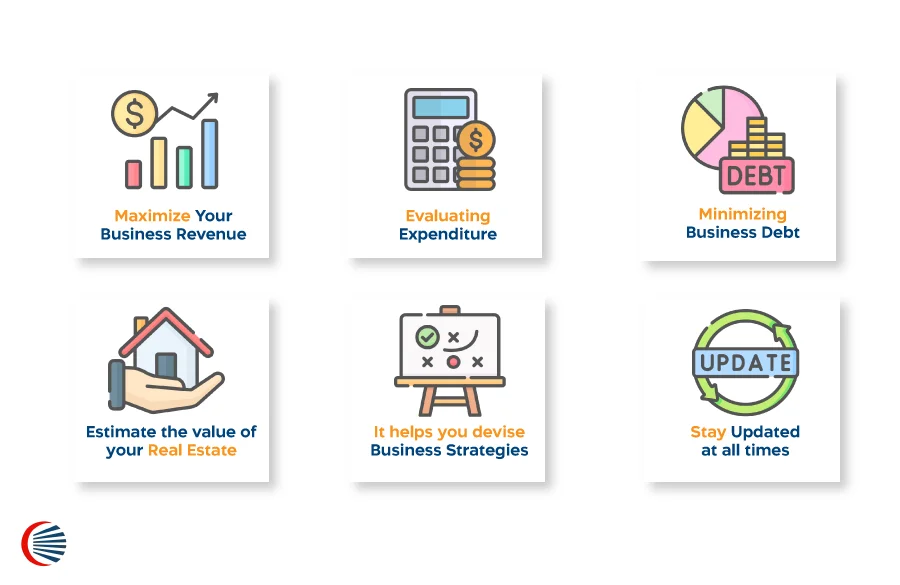Expert Advice on Real Estate Tax Services to Maximize Savings
Essential Techniques for Reliable Building And Construction Audit in Building & Property Projects
In the dynamic landscape of building and actual estate, effective bookkeeping practices are critical to task success. Recognizing the fundamental concepts of building audit, paired with the application of task setting you back methods, can dramatically improve economic accuracy. In addition, leveraging technology with innovative management software program streamlines procedures and facilitates crucial conformity with laws. As the market deals with raising intricacy, the demand for normal financial efficiency monitoring comes to be critical. Yet, the question stays: what details techniques can be employed to ensure that these essential aspects perfectly incorporate for optimum outcomes?
Recognizing Construction Audit Essentials
Building accounting is a specific area that requires an extensive understanding of financial management principles customized to the one-of-a-kind challenges of the building and construction market. Unlike typical accounting, which concentrates on a regular collection of financial tasks, building accounting need to represent the dynamic nature of jobs, varying costs, and differing timelines.
Crucial element of building and construction bookkeeping consist of task costing, agreement administration, and monetary reporting. Job setting you back makes it possible for firms to track expenditures associated with specific jobs, making sure that spending plans are abided by and profitability is taken full advantage of. Precise contract monitoring is important as it includes the detailed handling of adjustment orders, development invoicing, and retention, every one of which can considerably impact capital and project outcomes.
In addition, monetary coverage in construction audit demands the usage of certain metrics, such as Job in Progress (WIP) reports and percentage-of-completion accounting. These devices give stakeholders with insights right into task performance and economic health and wellness. By grasping these fundamental elements, building specialists can enhance monetary oversight, improve decision-making, and eventually drive project success, making sure that both long-term goals and temporary objectives are satisfied efficiently.
Executing Work Costing Approaches
Efficient work setting you back techniques are necessary for construction firms to preserve monetary control and enhance profitability. By accurately tracking expenses related to each project, firms can determine areas of overspending, improve budget administration, and enhance source allowance. Carrying out a systematic approach to task setting you back includes numerous key strategies.
First, establish a clear structure for categorizing expenses. Straight prices, such as materials and labor, must be separated from indirect costs, like overhead and administrative costs. This distinction enables for more specific monitoring and analysis.

Third, on a regular basis evaluation and update expense information to show real-time task problems. This allows timely modifications and notified decision-making, making certain that tasks stay on track financially.
Using Building And Construction Administration Software
In today's affordable landscape, leveraging construction monitoring software has actually ended up being an important device for boosting task effectiveness and accuracy. These software program solutions improve various facets of construction bookkeeping, from budgeting to invoicing, enabling job supervisors to preserve exact economic oversight. By incorporating real-time data tracking, teams can check expenditures and adjust spending plans proactively, making sure that tasks stay financially sensible.

Furthermore, building management software program facilitates boosted communication amongst stakeholders. With centralized systems, all staff member, from job supervisors to subcontractors, can access current monetary information, boosting and minimizing inconsistencies partnership. This transparency not only help in decision-making but additionally fosters trust fund among all events involved.
Additionally, the automation of regular bookkeeping tasks lowers the possibility of human errors, which can bring about costly economic mismanagement. With attributes such as automated payment and expenditure tracking, building and construction management software application permits groups to concentrate on calculated preparation and implementation instead of administrative jobs.
Eventually, embracing construction management software application stands for an investment in functional effectiveness, positioning firms to react agilely to the vibrant needs of building and realty jobs. Embracing these tools can considerably boost the standards of building and construction accountancy practices.
Ensuring Compliance With Regulations
Maintaining conformity with laws is a fundamental facet of successful building accountancy that can not be forgotten. Construction jobs undergo a myriad of neighborhood, state, and government policies, affecting whatever from security requirements to financial reporting requirements (Real Estate Accountants). Therefore, it is essential for construction accountants to remain informed concerning these guidelines to prevent lawful charges and economic troubles.
One secret technique is to implement durable radar that check conformity in real-time. This might consist of regular audits of monetary records, contracts, and allows to make sure alignment with regulatory assumptions. Additionally, buying continuous training for accounting personnel can foster a click society of conformity, making it possible for the team to quickly adapt to regulatory adjustments.
Developing clear interior plans that detail compliance procedures makes certain that all group members comprehend their responsibilities. By prioritizing compliance in building and construction bookkeeping practices, organizations not just alleviate threats but also enhance their reputation and operational performance, ultimately contributing to the task's general success.

Monitoring Financial Efficiency Frequently
On a regular basis checking economic performance is essential for the success of construction jobs, as it supplies useful insights into budgeting, capital, and total task practicality. Reliable financial oversight makes it possible for task managers to identify disparities in between forecasted and actual prices, enabling timely restorative actions.
Carrying out a structured approach to financial surveillance involves the use of essential efficiency indications (KPIs) such as profit margins, cost differences, and earned value analysis. These metrics promote a clear understanding of task health, enabling groups to make educated choices.
Frequent evaluations of monetary data additionally help in projecting future expenses and earnings, aiding to stay clear of capital scarcities that can jeopardize project timelines. Utilizing innovative bookkeeping software application can enhance the tracking process, supplying real-time updates and boosting data precision.
Furthermore, establishing a routine for monetary performance evaluations promotes liability amongst staff member. Normal financial conferences make certain that all stakeholders remain aligned on job goals and economic objectives. By focusing on regular monetary surveillance, building and construction firms can mitigate risks, optimize resource appropriation, and ultimately boost task success.

Final Thought
To conclude, efficient construction accountancy is important for the effective management of building and property tasks. By applying durable task setting you back approaches, leveraging advanced building monitoring software program, making sure regulative compliance, and consistently keeping track of economic efficiency, companies dig this can enhance economic oversight and alleviate risks. These important approaches not just promote adherence to budget plans however additionally promote educated decision-making, ultimately leading to improved job outcomes and long-term financial sustainability in the construction industry.
By mastering these fundamental facets, building professionals can boost monetary oversight, enhance decision-making, and ultimately drive task success, making sure that both long-lasting goals and temporary goals are satisfied efficiently.
These software application remedies improve numerous aspects of building and construction accounting, from budgeting to invoicing, allowing task supervisors to keep specific monetary oversight. By prioritizing constant Discover More Here monetary surveillance, building companies can reduce dangers, enhance source allocation, and eventually improve job success.
In conclusion, efficient building audit is crucial for the effective monitoring of building and actual estate jobs. By carrying out robust job setting you back approaches, leveraging innovative building and construction monitoring software, making sure regulatory compliance, and regularly keeping track of monetary performance, companies can enhance financial oversight and mitigate risks.